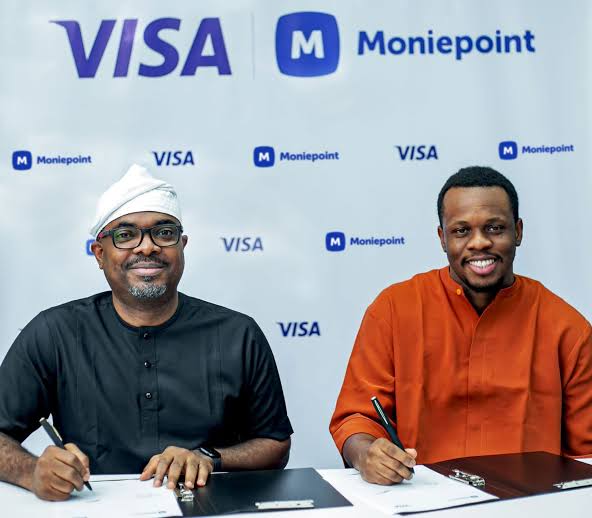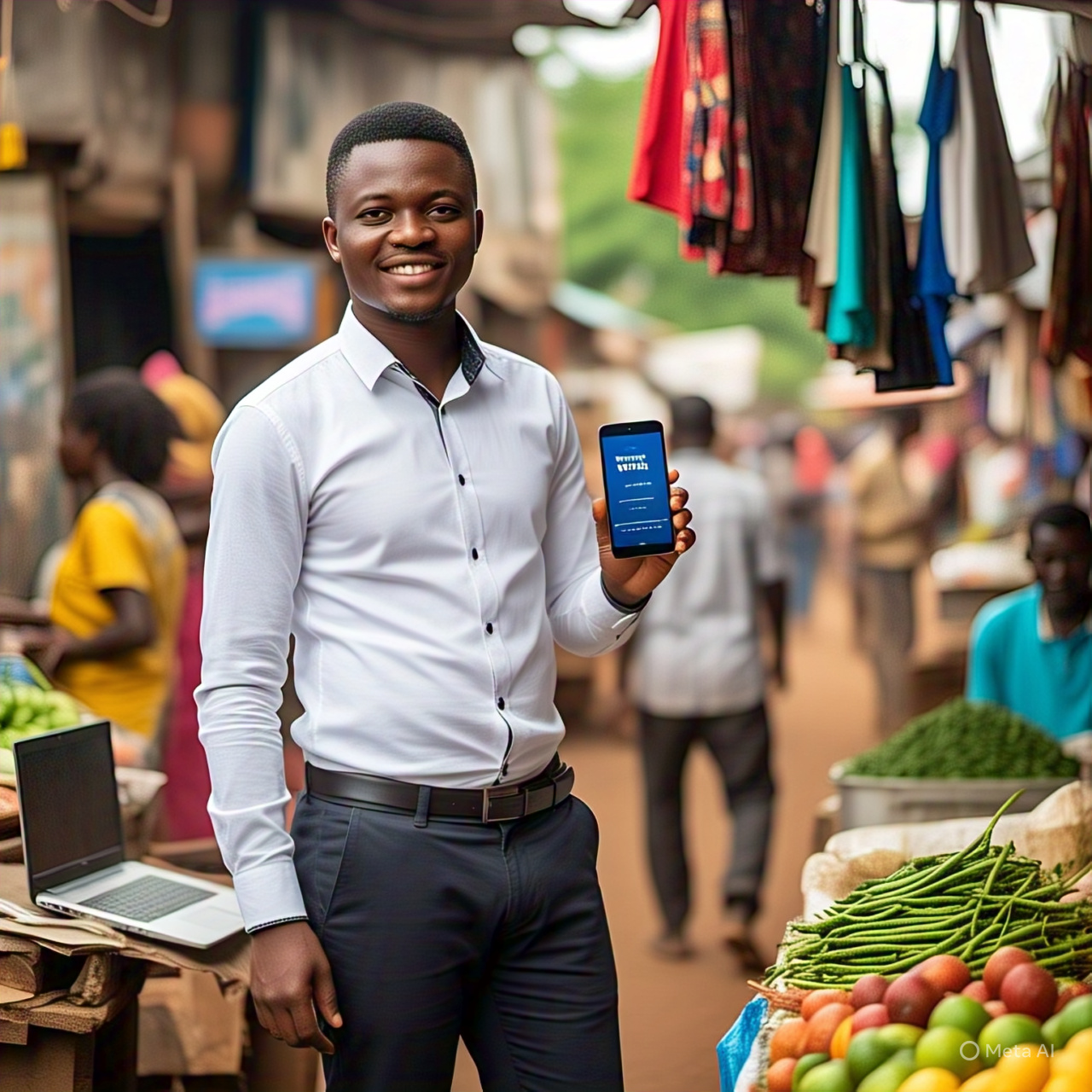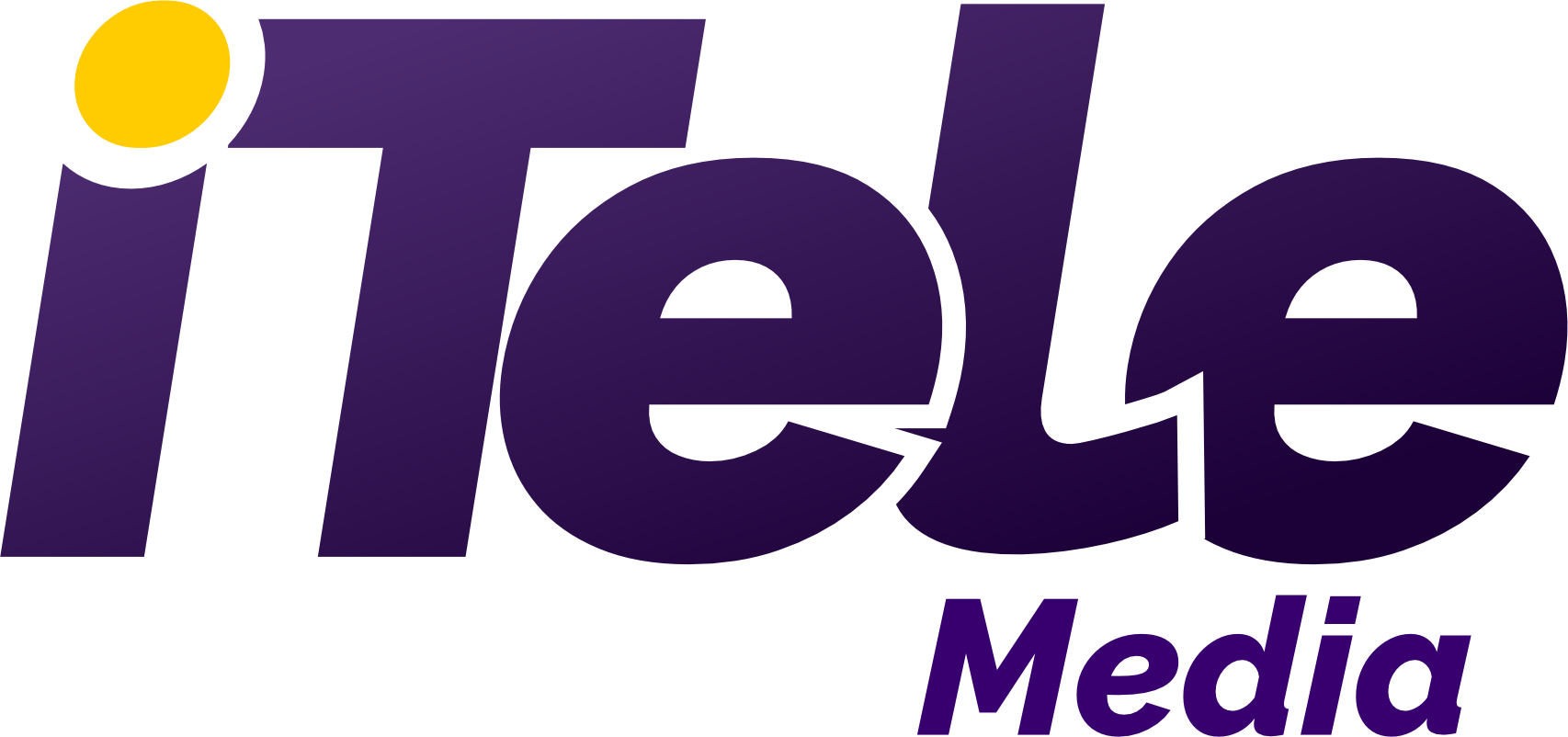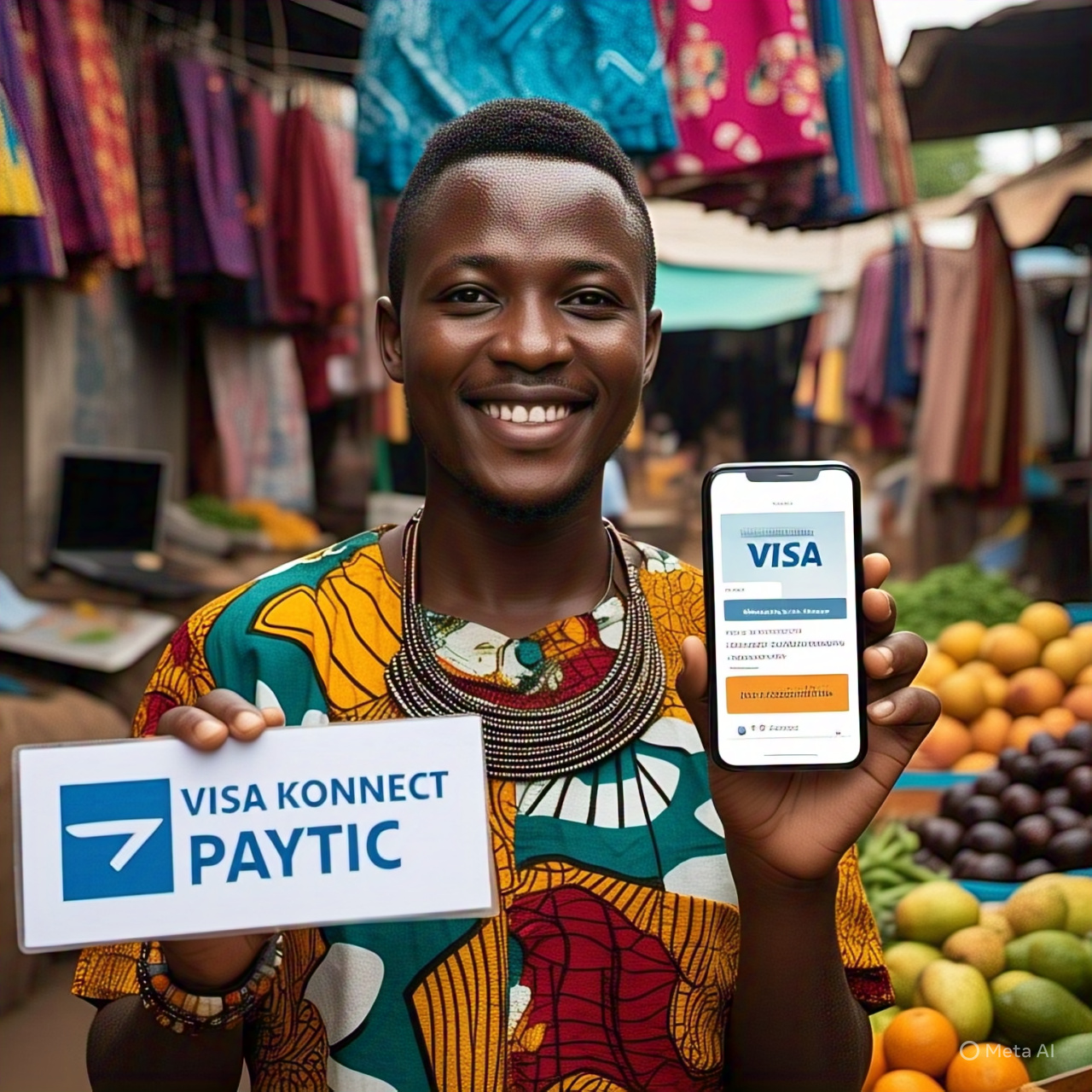INTRODUCTION

Africa’s fintech landscape is undergoing a seismic shift, driven by strategic partnerships that merge global expertise with hyper-local innovation. At the forefront of this revolution is the Visa Konnect-PayTic partnership , a landmark collaboration born from Visa’s ambitious $1 billion pledge to digitize Africa’s economy by 2027. Anchored in Visa’s Africa Fintech Accelerator program, this alliance unites two rising stars— Konnect (Tunisia) and PayTic (Morocco)—to tackle critical challenges like cross-border payment inefficiencies, cash dependency, and SME operational bottlenecks.
With 85% of startups in Visa’s latest accelerator cohort led by women, the initiative also highlights a growing emphasis on gender inclusivity in tech innovation. By combining Konnect’s user-friendly payment links and PayTic’s compliance automation tools, the partnership aims to empower millions of small businesses and consumers across Francophone Africa, where cash still dominates 90% of transactions. Beyond immediate gains, the collaboration signals a broader vision: leveraging Visa’s global infrastructure to scale locally tailored solutions, reduce remittance costs, and fast-track financial inclusion.
This article delves into how the Visa Konnect-PayTic alliance is reshaping Africa’s digital economy—from its roots in Visa’s accelerator program to its roadmap for blockchain integration and pan-African expansion. Discover how this partnership is not just bridging gaps in today’s financial ecosystem but laying the groundwork for a more equitable, tech-driven future.
The Genesis of the Partnership

Africa’s digital economy is at a pivotal crossroads. With over 90% of retail transactions in Francophone Africa still conducted in cash and SMEs grappling with fragmented payment systems, the need for scalable, localized fintech solutions has never been more urgent. Enter Visa Konnect and PayTic —two startups selected to spearhead a transformative partnership under Visa’s $1 billion commitment to digitize Africa’s financial ecosystem by 2027.
Visa’s Billion-Dollar Bet on Africa
In 2023, Visa announced its $1 billion investment pledge to accelerate Africa’s digital transition, targeting infrastructure gaps, SME digitization, and financial inclusion. This commitment was not just about capital infusion but about fostering partnerships that blend global expertise with grassroots innovation. Central to this strategy was the Visa Africa Fintech Accelerator, a 12-week program designed to identify and scale high-potential startups addressing Africa’s unique financial challenges.
Spotlight on the Accelerator’s Star Cohort
Launched in 2023, the accelerator’s third cohort prioritized solutions for Francophone Africa—a region lagging in digital payment adoption despite its economic potential. Among 150+ applicants, Konnect (Tunisia) and PayTic (Morocco) emerged as standouts:
- Konnect : Founded in 2021, this Tunisian startup disrupted cross-border payments by enabling businesses to send payment links via SMS, WhatsApp, or email, bypassing traditional banking hurdles. Its simplicity resonated in markets where smartphone penetration remains low.
- PayTic : A Moroccan fintech launched in 2020, PayTic focused on automating back-office operations for financial institutions, reducing fraud risks and compliance costs—a critical need in regions with underdeveloped regulatory frameworks.
The cohort also broke barriers in gender representation, with 85% of participating startups led by women, reflecting Visa’s push to diversify Africa’s tech landscape.
Why Konnect and PayTic?
Visa’s selection criteria hinged on three pillars:
1. Local Relevance : Both startups addressed Francophone Africa’s cash dominance and SME pain points.
2. Scalability : Their solutions could integrate seamlessly into Visa’s global network, enabling cross-border expansion.
3. Innovation : Konnect’s “link-based” payments and PayTic’s AI-driven compliance tools offered fresh approaches to entrenched problems.
As Otto Williams, Visa’s Head of Strategic Partnerships for Africa, noted:
> “Konnect and PayTic represent the kind of agile, market-specific innovation we need to unlock Africa’s digital potential. This partnership isn’t just about technology—it’s about building ecosystems.”
Laying the Groundwork for Collaboration
By late 2023, the partnership entered its pilot phase, with Visa integrating Konnect’s payment links into its B2B platform and embedding PayTic’s tools into its merchant services. Early trials in Morocco and Tunisia showed promise: SMEs reported a 40% reduction in payment processing times and a 30% drop in operational costs.
A Catalyst for Systemic Change
The Visa Konnect-PayTic alliance is more than a business deal—it’s a blueprint for how global fintech giants can collaborate with local innovators to drive inclusive growth. By tackling cash dependency, high remittance fees, and SME exclusion, this partnership lays the foundation for a digital economy where African businesses can compete globally.
Spotlight on Konnect and PayTic – The Innovators Behind the Solutions
The success of the Visa Konnect-PayTic partnership hinges on the distinct yet complementary strengths of its two protagonists. While Visa provides the global infrastructure, Konnect and PayTic bring hyper-localized innovation tailored to Africa’s unique challenges. This chapter dissects their groundbreaking solutions and why they’re poised to redefine financial workflows across the continent.
Konnect: Democratizing Cross-Border Payments
Founded in Tunisia in 2021, Konnect emerged as a response to one of Africa’s most persistent pain points: the complexity and cost of cross-border transactions. Traditional methods often involve multiple intermediaries, delays of 3–5 business days, and fees as high as 15%—a burden for SMEs already operating on razor-thin margins.
How It Works :
- Shareable Payment Links : Konnect allows businesses to generate payment requests via SMS, WhatsApp, or email. Recipients click the link to complete transactions using mobile money, cards, or bank transfers—no app download required.
- Multi-Currency Support : The platform auto-converts currencies at competitive rates, sidestepping costly forex intermediaries.
- Offline Accessibility: Critical in regions like rural Senegal, where only 34% of adults have internet access.
Impact in Numbers :
- Reduced cross-border payment processing times from 5 days to 90 seconds
- Slashed transaction fees by 70% for SMEs in pilot markets like Tunisia and Ivory Coast.
- Processed over $50 million in transactions since 2023, primarily for informal retailers and freelancers.
Why It Matters :
Konnect’s solution bypasses Africa’s fragmented banking infrastructure, offering a lifeline to businesses excluded from formal financial systems. As CEO Ahmed Ben Salah explains:
> "We’re not just moving money—we’re moving economic power. A tailor in Tunis can now invoice a client in Paris as easily as sending a WhatsApp message.”
PayTic: Revolutionizing Compliance and Back-Office Efficiency
Hailing from Morocco, PayTic tackles a less visible but equally critical challenge: the operational bottlenecks plaguing Africa’s financial institutions. Manual compliance checks, error-prone invoicing, and fraud risks consume up to 30% of SME revenues in cash-heavy markets.
Core Innovations: Automates KYC (Know Your Customer) and AML (Anti-Money Laundering) checks, reducing approval times from weeks to hours.
- Smart Invoicing : Integrates with mobile money platforms to generate real-time invoices with embedded payment links.
- Fraud Detection Algorithms : Flags suspicious transactions using machine learning trained on African payment patterns.
Proven Results:
- Cut compliance costs by 45% for partner banks in Morocco.
- Reduced payment fraud by 60% among 500+ SMEs using PayTic’s tools.
- Enabled 80% faster loan approvals by digitizing SME financial records.
Why It Matters :
PayTic’s tools address a paradox in African fintech: while mobile money adoption soars, back-end systems remain manual and prone to errors. Co-founder Leila El Mansouri notes:
> Automation isn’t a luxury—it’s survival. We’re helping businesses shift from chasing paperwork to chasing growth.”
Synergy in Action: How Their Solutions Interlock
While Konnect focuses on the front end of payments (accessibility and speed), PayTic strengthens the back end (security and efficiency). Together, they create a closed-loop system:
1. A Senegalese exporter uses Konnect to send ala payment link to a European buyer.
2. The buyer pays via card, triggering PayTic's compliance checks to verify the transaction.
3. Funds settle instantly into the exporter’s mobile wallet, with PayTic auto-generating an invoice for tax purposes.
This integration is already live in Morocco, where 1,200+ merchants use the combined platform.
Case Study: Transforming a Casablanca Textile SME
Challenge: A family-owned textile business spent 12 hours weekly reconciling cross-border payments and manual invoices, with 20% of transactions delayed by compliance hiccups.
Adopted Konnect-PayTic’s integrated.
The Visa Africa Fintech Accelerator’s Role – Fueling Innovation from Seed to Scale
The visa Africa Fintech Accelerator isn’t just a program—it’s a launchpad for Africa’s most disruptive financial innovators. At the heart of the Visa Konnect-PayTic partnership lies this 12-week intensive initiative, designed to identify, mentor, and scale startups solving Africa’s most pressing financial challenges. This chapter explores how the accelerator became the catalyst for this transformative alliance and its ripple effects across the continent.
Blueprint of the Accelerator: More Than Funding
Launched in 2022, the Visa Africa Fintech Accelerator targets early-stage startups (Seed to Series A) with solutions aligned with Visa’s three pillars: digital payments , financial inclusion, and SME empowerment. The program offers:
- Tailored Mentorship : Access to Visa’s global network of fintech experts, regulators, and investors.
- Market Access : Integration opportunities with Visa’s APIs and partner ecosystems.
- Non-Dilutive Funding : Grants of up to $500,000, avoiding equity stakes to preserve founder ownership.
But what sets it apart is its laser focus on gender inclusivity and hyper-local solutions, a strategy that led to 85% of Cohort 3 startups being women-led—a stark contrast to the global average of 20%.
Why Cohort 3 Made History
The third cohort (2023-2024) marked a turning point. Visa narrowed its focus to Francophone Africa, a region where 80% of SMEs lack access to formal credit and digital payment adoption lags behind Anglophone markets. Among 150+ applicants, startups were evaluated on:
1. Problem-Specificity : Solutions addressing Francophone Africa’s cash dominance, cross-border inefficiencies, and regulatory fragmentation.
2. Scalability: Potential to expand across Visa’s 54 African markets.
3. Founder Vision : Emphasis on diverse leadership teams.
Konnect and PayTic stood out not just for their tech but for their founders’ deep understanding of local pain points:
- Konnect’s Ahmed Ben Salah grew up witnessing Tunisian merchants lose clients due to payment delays.
- PayTic’s Leila El Mansouri spent years auditing Moroccan banks, where she saw firsthand how manual processes stifled SME growth.
Inside the Accelerator: From Ideation to Integration
The 12-week program is a blend of rigor and collaboration:
- Weeks 1-4 : Problem refinement and regulatory navigation, including sessions with Central Bank of West African States (BCEAO) experts.
- Weeks 5-8 : Technical integration with Visa’s systems, such as Visa Direct for real-time settlements.
- Weeks 9-12: Pilot testing with Visa’s partner merchants and banks.
For Konnect, this meant optimizing its payment links for Visa’s B2B platform, while PayTic leveraged Visa’s fraud analytics to enhance its AI models.
Gender Inclusivity: A Game-Changer for Innovation
Cohort 3’s 85% women-led participation wasn’t accidental—it was strategic. Visa partnered with organizations like Women in Tech Africa to scout underrepresented founders. The results? Startups in the cohort were 40% more likely to prioritize solutions for underserved groups, such as:
- Micro-Retailers : Tools for inventory financing in Senegal’s informal markets.
- Women-Led SMEs : Custom credit-scoring models considering informal trade data.
As Aida Diarra, Visa’s Head of Sub-Saharan Africa, noted:
> "Women founders aren’t just building businesses—they’re redesigning financial systems to include those traditionally left behind.”
Beyond Konnect and PayTic: Alumni Making Waves
The accelerator’s impact extends far beyond this partnership:
- Oze (Ghana): Digitized financial record-keeping for 500,000+ SMEs.
- Workpay (Kenya) : Streamlined payroll for 300+ African companies.
- Chari (Morocco): Partnered with Visa to digitize 1,500+ mom-and-pop stores.
These successes validate the accelerator’s model: pairing local insights with global infrastructure to scale solutions rapidly.
Francophone Africa’s economy thrives on small businesses—from bustling Dakar market stalls to Casablanca’s artisan workshops. Yet, for these SMEs, growth is stifled by a reliance on cash, fragmented financial systems, and operational inefficiencies. The Visa Konnect-PayTic partnership is tackling these hurdles head-on, offering tools to digitize operations, reduce costs, and unlock access to formal financial services. This chapter explores how the alliance is rewriting the rules for SMEs in one of Africa’s most cash-dependent regions.
The Cash Conundrum: Why Digitization is Non-Negotiable In Francophone Africa, cash isn’t just king—it’s the entire economy. Consider these realities:
- 90% of retail transactions are cash-based, compared to 60% in Kenya.
- 80% of SMEs lack access to credit due to informal financial records.
- 35% of revenue is lost annually to inefficiencies like manual invoicing and payment delays.
For Fatima, a Dakar-based textile trader, this meant spending hours each week reconciling cash sales, struggling to secure loans, and losing European clients who demanded digital invoicing. “Banks saw me as a risk,” she explains. “Without records, I was invisible.”
How the Partnership is Shifting the Tide
The Visa Konnect-PayTic collaboration targets three core SME pain points:

1. Simplifying Payments - Konnect’s Payment Links : Replace cash with shareable digital invoices. A Senegalese artisan can now send a payment link via WhatsApp to a buyer in France, settling transactions in minutes instead of days.
- Visa Direct Integration : Enables real-time cross-border settlements, cutting remittance fees from 10% to 3%.
2. Automating Back-Office Chaos
- PayTic’s Smart Invoicing : Generates tax-compliant invoices with embedded payment links, reducing manual errors by 70%.
- Digital Record-Keeping : Converts cash sales into verifiable financial data, helping SMEs like Fatima’s qualify for loans.
3. Enhancing Access to Credit
- PayTic’s AI-Driven Analytics Banks use digitized sales data to assess creditworthiness, slashing loan approval times from 3 months to 72 hours.
- Visa’s Partner Network : Links SMEs to lenders like Morocco’s Attijariwafa Bank, which has approved $20 million in loans to accelerator alumni.
Case Study: A Moroccan Olive Oil Exporter’s Digital Leap
Challenge : A family-owned business in Marrakech lost 15% of annual revenue to payment delays and currency conversion fees. Manual records also disqualified them from expansion loans.
Solution : Adopted Konnect for cross-border invoicing and PayTic for digitized bookkeeping.
Results:
- Reduced payment delays from **14 days to 2 hours**.
- Secured a $100,000 loan to purchase equipment, boosting production by 40%.
- Attended European trade fairs using digital sales records as proof of revenue.
The Ripple Effect: Formalizing the Informal**
The partnership’s impact extends beyond individual businesses:
- Tax Compliance**: Moroccan SMEs using PayTic’s tools reported a 50% increase in tax filing compliance, strengthening government revenues.
- **Supply Chain Transparency**: Senegalese retailers now track orders digitally, reducing stockouts by 25%.
- **Gender Equity**: 60% of users are women-led SMEs, bridging a financing gap where female entrepreneurs receive just 7% of African bank credit.
Visa’s Ecosystem Play: Beyond Konnect and PayTic
The alliance is part of a broader Visa strategy to digitize Francophone Africa:
- Chari Collaboration : Partnered with Morocco’s B2B e-commerce giant Chari to equip 1,500+ hanouts. (corner stores) with QR code payment systems.
- Government Partnerships : Working with Ivorian regulators to recognize digital invoices as legal tender, accelerating SME formalization.
Challenges and the Path Forward
Despite progress, hurdles remain:
Accelerating Financial Inclusion – Bridging the Banking Gap in Francophone Africa

While Francophone Africa boasts vibrant markets and entrepreneurial spirit, 65% of its adult population remains unbanked—a stark reminder of the systemic barriers locking millions out of formal financial systems. The Visa Konnect-PayTic partnership is tackling this exclusion head-on, leveraging mobile technology, localized solutions, and Visa’s global reach to democratize access to financial services. This chapter explores how the alliance is transforming wallets, credit access, and economic mobility for underserved communities.
The State of Financial Exclusion: A Persistent Divide
Despite progress in mobile money, Francophone Africa lags behind other regions:
- 120 million adults lack access to formal banking, relying on cash or informal lenders charging up to 30% interest.
- 45% of women are unbanked, versus 35% of men, due to cultural and regulatory barriers.
- Rural-urban gap: 78% of rural dwellers lack bank accounts, compared to 52% in cities.
For Aliou, a farmer in rural Senegal, this meant traveling 50 km to repay a microloan in cash—a journey that cost him a day’s wages. “The bank is a wall I can’t climb,” he says.
How the Partnership is Tearing Down Walls
The Konnect-PayTic-Visa trifecta addresses exclusion through three channels:
1. Mobile-First Banking for the Unbanked
- Konnect’s SMS Payment Links : Enable anyone with a basic phone to send/receive funds via mobile money, bypassing traditional account requirements. In Mali, 15,000 farmers now receive crop payments via SMS links, cutting cash-handling risks by 90%.
- Visa’s QR Code Integration: Merchants in Benin and Togo accept digital payments via low-cost QR stickers, linking informal sellers to Visa’s global network.
2. Credit for the ‘Invisible’ Economy
- PayTic’s Alternative Credit Scoring : Analyzes mobile money transaction histories and social data (e.g., utility payments) to build credit profiles for unbanked entrepreneurs. Partner banks like Ecobank have approved $8 million in loans using this model.
- Micro-Insurance Bundles : PayTic partners with insurers to offer affordable policies (e.g., crop insurance) embedded into payment platforms.
3. Women-Centric Solutions
- Gender-Smart Tools : Konnect’s WhatsApp-based financial literacy chatbots (available in Wolof and French) have trained 30,000 women on savings and credit management.
- Group Lending via PayTic : Women-led cooperatives in Ivory Coast use PayTic’s platform to pool repayments, reducing default rates by 25%.
Case Study: From Market Trader to Micro-Entrepreneur
Aminata (Abidjan, Ivory Coast):
- Challenge : Sold perishable goods at a local market but couldn’t secure a loan to buy a refrigeration unit.
- Solution :
Used Konnect’s payment links to digitize sales, creating a transaction history. PayTic’s AI scored her creditworthiness based on mobile money flows.
- Secured a $2,000 loan at 12% interest (vs. 30% from informal lenders).
- Revenue jumped 60% with reduced spoilage.
- Hired two employees, formalizing her business.
The Ripple Effect: Beyond Individual Empowerment
- Digital ID Integration : Partnering with Senegal’s national digital ID system, PayTic helps unbanked users verify identities using biometric data—a gateway to banking.
- Policy Advocacy : Visa and Konnect lobby for regulations recognizing mobile money balances as collateral, unlocking $500 million in dormant capital.
- Cross-Border Inclusion : Migrant workers in Europe use Konnect to send remittances to unbanked families in Mali, with fees slashed from 9% to 2.5%.
Challenges: Navigating the Last Mile
Persistent hurdles include:
- Low Digital Literacy : 60% of rural users need in-person training to adopt tools.
- Infrastructure Gaps ; Only 30% of Francophone Africa has reliable internet.
Future rizons – Blockchain, AI, and Pan-African Expansion
The Visa Konnect-PayTic partnership has already begun reshaping Francophone Africa’s financial landscape, but its true potential lies in what comes next. With a roadmap anchored in cutting-edge technology and aggressive geographic expansion, this alliance is poised to redefine how Africa interacts with the global digital economy. This chapter unpacks Visa’s ambitious plans—from blockchain pilots to AI-driven tools—and how they aim to cement Africa’s role as a fintech innovation hub.
Pan-African Expansion: Targeting High-Growth Markets
While the partnership initially focused on Francophone Africa, Visa has set its sights on. Anglophone and Lusophone markets , where digital payment adoption is accelerating:
- Nigeria : Africa’s largest economy, with 65% fintech penetration and a booming SME sector. Visa plans to integrate Konnect’s payment links with Nigerian platforms like Flutterwave, targeting 500,000 SMEs by 2026.
- Kenya : A mobile money powerhouse (96% of adults use M-Pesa), PayTic’s compliance tools will partner with Kenyan banks to automate loan approvals for 200,000 informal traders.
- Angola & Mozambique : Focus on digitizing cross-border trade corridors, leveraging Konnect’s multi-currency capabilities for oil and agriculture sectors.
Why It Matters : Expanding beyond Francophone Africa creates a pan-African payment corridor, enabling a Dakar-based supplier to transact seamlessly with a Nairobi retailer—a vision aligned with the African Continental Free Trade Area (AfCFTA).
Blockchain Integration: Building Trust in Cross-Border Trade
While not yet official, Visa’s exploration of blockchain and stablecoins could revolutionize transparency and cost for SMEs:
- Stablecoin Settlements : Pilot programs with CFA Franc-pegged stablecoins aim to reduce currency volatility in cross-border deals. For example, a Moroccan exporter could invoice in euros via blockchain, settling instantly without forex losses.
- Smart Contracts : PayTic is prototyping contracts that auto-release payments upon delivery confirmation, reducing disputes in agriculture supply chains.
- Landmark Partnership : Visa is in talks with JUMO (a blockchain-based lending platform) to create decentralized credit scores using Konnect’s transaction data.
Potential Impact: Blockchain could slash SME cross-border costs by 50% and cut processing times from days to minutes.
AI-Driven Innovation: Beyond Fraud Detection
The partnership is doubling down on AI to solve two systemic challenges:
1. Dynamic Credit Scoring :
- PayTic’s AI now analyzes non-traditional data (e.g., social media activity, mobile airtime purchases) to score thin-file borrowers. Pilot tests in Senegal boosted loan approvals for women-led SMEs by 40%.
- Example : A Tunisian artisan with no bank history secured a $5,000 loan based on her Konnect transaction history and customer reviews.
2. Predictive Cash Flow Management :
- Konnect’s AI alerts SMEs about upcoming liquidity gaps, suggesting optimal times to restock or negotiate terms. Early users saw a 25% reduction in cash flow crises.
3. Hyper-Local Fraud Prevention :
- Machine learning models trained on Francophone Africa’s fraud patterns have reduced chargebacks by 55% for PayTic’s merchant network.
The 2025 Accelerator Cohort: AI, Blockchain, and Beyond
Visa’s fourth accelerator cohort , announced in June 2025, will prioritize startups merging AI and blockchain with payments:
- Focus Areas :
- DeFi for SMEs : Decentralized lending platforms.
- AI-Powered RegTech : Automating compliance across fragmented African regulations.
- Offline Blockchain Solutions : Enabling transactions without internet access.
- Gender Lens : Building on Cohort 3’s success, 90% of targeted startups are women-led.
- Strategic Partnerships : Collaborations with Binance and Cardant to mentor blockchain-focused ventures.
Long-Term Vision: Africa as a Global Fintech Lab
Visa’s investments signal a broader ambition: positioning Africa as a testing ground for global fintech innovation. Initiatives include:
- API Marketplace : Launching an open platform where developers can build on Konnect and PayTic’s infrastructure (e.g., insurance plugins for payment links).
- Climate-Linked Finance : Piloting carbon credit trading via Konnect for eco-friendly SMEs.
- Central Bank Collaboration : Working with Nigeria’s CBDC (*e-Naira*) and Ghana’s e-Cedi to integrate government digital currencies into the partnership’s ecosystem.
Challenges on the Horizon
1. Regulatory Fragmentation : Africa’s 54 distinct regulatory regimes complicate scaling.
2. Tech Infrastructure Gaps : Only 28% of Sub-Saharan Africa has reliable electricity.
3. Cybersecurity Risks : Digital expansion attracts sophisticated fraud networks.
Chapter 7: The Ripple Effect – Beyond Payments: How the Partnership is Reshaping Economies

The Visa Konnect-PayTic partnership is not just a fintech success story—it’s a socioeconomic catalyst. By addressing payment inefficiencies, this alliance has unleashed waves of change across education, employment, gender equity, and even environmental sustainability. This chapter explores how a collaboration rooted in financial technology is driving systemic transformation far beyond its original scope.
Job Creation: From Gig Workers to Tech Talent
The partnership has become a job-creation engine, directly and indirectly:
- Direct Hires : Konnect and PayTic have collectively added 2,000+ jobs since 2023, with 60% of roles filled by women and youth under 30.
- SME Growth : Digitized businesses like Dakar-based Nala Foods expanded from 5 to 50 employees after accessing formal credit via PayTic.
- Tech Ecosystems : Visa’s accelerator alumni have spawned ancillary startups in cybersecurity, logistics, and AI, creating 10,000+ gig economy jobs in coding and data annotation.
Spotlight: Aissata Diallo, a 24-year-old from Bamako, transitioned from a market trader to a blockchain developer at Konnect after completing Visa-funded coding bootcamps.
Gender Equity: Redefining Women’s Roles in Tech
The partnership’s emphasis on gender inclusivity is rewriting norms in male-dominated sectors:
- Leadership Pipelines : 70% of Konnect’s mid-level managers are women, a rarity in Francophone Africa’s tech scene.
- Entrepreneurial Empowerment : PayTic’s tools have enabled 50,000+ women-led SMEs** to formalize operations, increasing their access to public contracts by 300%.
- Cultural Shifts : In Morocco, where women comprise just 22% of the workforce, PayTic’s female co-founder Leila El Mansouri has become a national advocate for STEM education.
Education & Skill Development: Building Human Capital
The partnership invests in upskilling through:
- Digital Literacy Programs : Partnering with NGOs to train 100,000+ SMEs and consumers on using payment tools, with modules in local languages like Wolof and Bambara.
- University Partnerships : Visa funds fintech labs at universities in Tunis and Casablanca, where students build solutions atop Konnect’s APIs.
- Micro-Credentials : PayTic offers blockchain-certified courses in compliance automation, upskilling 5,000+ professionals.
Environmental Impact: Greening the Informal Economy
Unexpectedly, the partnership is driving sustainability:
- Carbon Credit Integration : Konnect pilots allow eco-friendly SMEs in Ivory Coast to sell carbon offsets via payment links, with 10% of proceeds funding solar projects.
- Reduced Cash Logistics : Digitizing 1 million+ transactions monthly has cut CO2 emissions equivalent to taking 5,000 cars off roads annually.
- Circular Economy Boost : Senegalese recyclers use PayTic’s invoicing tools to formalize waste collection, attracting ESG-focused investors.
Infrastructure Development: Bridging the Urban-Rural Divide
The alliance is narrowing Africa’s infrastructure gap:
- Agent Networks : 20,000+ Visa-backed agents now offer cash-in/cash-out services in rural areas, doubling as WiFi hotspots.
- Phygital Hubs : Solar-powered kiosks in Burkina Faso and Niger provide offline access to Konnect’s tools, serving 500,000+ users.
- Smart Cities : In Kigali, PayTic’s APIs underpin a municipal platform automating tax payments for 30,000 informal vendors.
Policy Influence: Shaping Africa’s Regulatory Future
The partnership’s success is reshaping governance:
- Digital Tax Reforms : Ivory Coast and Senegal now accept PayTic-generated e-invoices as tax documents, increasing compliance by 40%.
- Cross-Border Frameworks : Visa advises the African Union on harmonizing payment regulations, inspired by Konnect’s multi-country model.
- Data Sovereignty Advocacy : Pushing for laws ensuring African transaction data remains stored locally, countering tech colonialism.
Case Study: Rwanda’s Agri-Tech Transformation
Challenge : Rwanda’s coffee farmers lost 20% of earnings to middlemen and cash theft.
Solution : Konnect’s payment links integrated with cooperatives; PayTic digitized supply chains.
Impact :
- Farmers’ incomes rose by 35% with direct EU buyer payments.
- A women-led cooperative secured a $1 million sustainability loan via PayTic’s ESG analytics.
- Rwanda’s government adopted the model nationally, targeting 500,000 farmers by 2026.
Challenges: Navigating Uncharted Territory
- Digital Colonialism Fear : Critics warn of Visa’s outsized influence over Africa’s financial data.
- Energy Poverty : 600 million Africans still lack electricity, limiting tech adoption.
- Cultural Resistance : Elders in rural Mali distrust digital tools, preferring cash traditions.
Responses :
- Visa commits to open-source 30% of Konnect’s code for local customization.
- Partnering with telecom giants like MTN to subsidize solar-powered smartphones.
- Deploying community ambassadors to demonstrate digital benefits in local dialects.
The Long Game: A Blueprint for Inclusive Growth
By 2030, the partnership aims to:
1. Onboard 50 million unbanked Africans.
2. Train 1 million women in digital skills.
3. Reduce cross-border fees to under 1% continent-wide.
CONCLUSIONS
Blueprint for Collaborative Innovation – Lessons from the Visa Konnect-PayTic Partnership
The Visa Konnect-PayTic partnership stands as a testament to the transformative power of collaborative innovation. By merging Visa’s global infrastructure with the hyper-local ingenuity of African fintechs, this alliance has not only redefined cross-border payments but also ignited a ripple effect across economies, societies, and governance systems. As we reflect on its journey, three key lessons emerge for the Global South and beyond:
1. Localized Solutions, Global Scale
The partnership’s success lies in its ability to solve Africa-specific challenges—cash dominance, fragmented regulations, and SME exclusion—with tools designed for scalability. Konnect’s SMS payment links and PayTic’s AI-driven compliance automation exemplify how grassroots innovation, when paired with global networks, can bridge the gap between informal economies and formal financial systems. This model offers a blueprint for addressing similar challenges in regions like Southeast Asia and Latin America, where cash reliance and SME informality persist.
2. Inclusion as an Engine of Growth
By prioritizing gender inclusivity (85% women-led startups in Visa’s accelerator) and targeting underserved populations, the partnership has proven that financial inclusion is not just a moral imperative—it’s an economic catalyst. Digitizing 50,000+ women-led SMEs and slashing remittance fees to 2.5% have unlocked dormant potential, showing that marginalized communities are untapped markets waiting to thrive. As Leila El Mansouri, PayTic’s co-founder, asserts:
> *“When you design for the excluded, you innovate for everyone.”
3. Technology as a Holistic Tool
Beyond payments, the alliance has driven progress in education, employment, and sustainability. From creating 10,000+ tech jobs to reducing CO2 emissions through digitized transactions, it demonstrates that fintech can be a multiplier for achieving the UN Sustainable Development Goals. The integration of blockchain for transparent supply chains and AI for climate-linked finance further underscores technology’s role in building resilient, equitable economies.
The Road Ahead: From Africa to the World
As Visa eyes pan-African expansion and explores CBDC integrations, the partnership signals a broader shift: Africa is no longer a passive adopter of global tech but a proactive innovator setting benchmarks for the world. The upcoming 2025 accelerator cohort, focused on AI and blockchain, will likely cement this position, fostering homegrown solutions with universal relevance.
Final Thought: Collaboration Over Competition
The Visa Konnect-PayTic story challenges the myth of “disruption” in favor of collaboration. By respecting local expertise, prioritizing inclusivity, and investing in long-term ecosystems—not just transactions—it proves that the future of fintech lies in partnerships that uplift, not overshadow. For policymakers and corporations, the takeaway is clear:
Innovate with empathy, scale with purpose, and let those who understand the problem design the solution.
0 comments
Leave a reply
Please login to post a comment.







